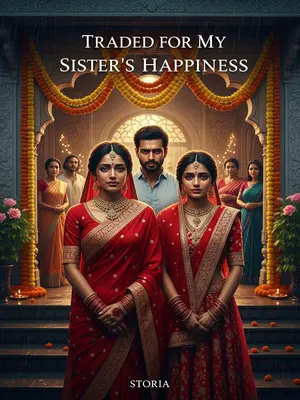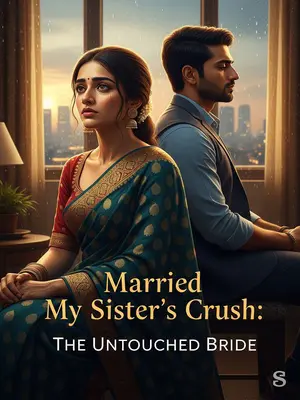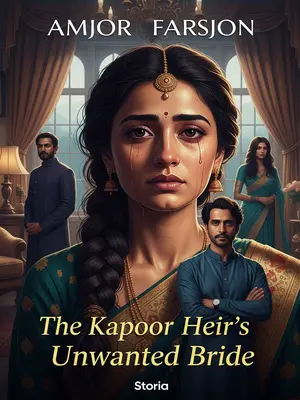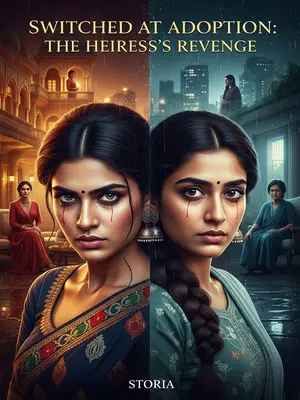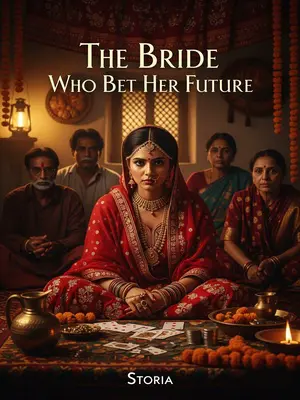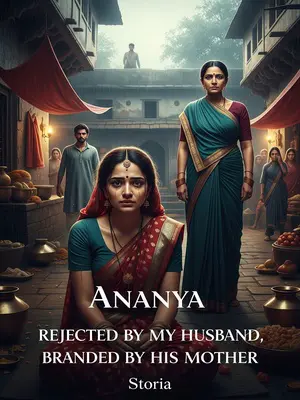Chapter 2: The Price of Honour
“I heard Tanvi is back!”
The voice floated above the clink of tea cups and the steady hum of the AC, sharpened by that familiar Mumbai curiosity. Here, everyone always has something to say about someone else—especially if it’s me.
“I remember, she was the one who asked for the divorce, na?”
A pause, then a snort. “Now that Rohan is the head of the Mehra family, I wonder if she regrets it!”
“What’s there to regret? She stole her sister’s marriage in the first place. Now she’s just returning things to their rightful owner!”
Another auntie let out a dramatic sigh. “Kal ke zamaane mein toh aisi baatein soch bhi nahi sakte the! Ab toh sab ulta ho gaya hai.”
Just as I reached the door of the private room at the Mumbai club, I caught the tail end of their gossip about me.
The chatter hit like a slap—familiar, stinging, relentless. The club smelled of sandalwood and expensive perfume, portraits of past presidents lining the walls with their stern gazes. I gripped the edge of my pallu tighter, pretending to scroll through WhatsApp, wishing the floor would swallow me.
In the last three years, the rumours about me have only grown.
Every retelling twisted the story—sometimes I was the villain, sometimes the fool. In Mumbai, a girl’s reputation is as fragile as a diya in the Diwali wind. I’d learned to tune out the noise, but today it felt especially loud.
They said I was playing hard to get.
Even my own parents believed it!
On the day of the divorce, Amma reminded me sharply:
“Since you two are already divorced, don’t contact him again! Your sister hurt her leg, and this is exactly when she needs Rohan. Don’t trouble her!”
Her words still echo in my mind, sharp as ever. Amma sat on the old swing in our Bandra bungalow, dupatta pinned just so, voice trembling with worry and accusation. I stood there, unable to meet her eyes, feeling both small and angry.
Seeing me lower my head in silence, she added:
“This marriage was always meant for your sister. If she hadn’t gone abroad, it would never have been your turn!”
The weight of family expectations pressed down on me—ancestral portraits glaring from the walls, neighbours whispering from the garden. Even the family dog seemed to look at me with disappointment.
My sister Priya and Rohan were the couple everyone in our circle envied!
They looked like they’d stepped out of a film poster—she, all grace and charm; he, tall, fair, and quiet. At every function, it was “Priya beta, Rohan beta,” while I faded into the background, clutching a book or helping in the kitchen.
But on the eve of their wedding, Priya ran away!
It was a full-on Bollywood scene—suitcases missing, phone switched off, everyone in a panic. Aunties clutched pearls, uncles made frantic calls, and Amma sat in a daze, muttering, “Betiyaan aisi hoti hai?”
By then, the families had already announced the union.
Neighbours were preparing mithai boxes, the caterer had orders lined up, wedding cards distributed all over South Mumbai. There was no turning back.
Under pressure from every side, the elders of the Mehra family decided to switch the bride to me!
I remember sitting in the living room, the aroma of filter coffee mixing with the stress in the air. Chachaji cleared his throat, “Tanvi, only you can save our family’s izzat now.” Amma nodded, her face tight with worry. My knees went weak, but I managed to nod, as if this was the most natural thing in the world.
I don’t know how they convinced him, but Rohan eventually agreed to marry me.
Maybe it was duty, maybe guilt, or just not wanting the family’s reputation to be dragged through colony gossip. Whatever the reason, we were married in a quiet ceremony, only close family present, an uncomfortable silence hanging over everything.
For three years after, we played the part of a normal couple.
From the outside, everything looked fine—dinners, family visits, the occasional Juhu beach outing. But at home, the air was thick with things left unsaid. Rohan was polite, never cruel, but always distant, as if we were acting out someone else’s script.
But everyone knew—even after marrying me, he never let go of Priya.
Sometimes I’d hear him humming Priya’s favourite songs, or see his eyes linger on her photos at family gatherings. Even Savitri, our maid, would look at me with pity when she brought in his chai.
He never let me enter the study.
Once, he forgot to close the door. I peeked in and felt like I’d fallen into a well of ice.
Time stood still—the room smelled of old books and his cologne, but what froze me was the sight of the walls.
The study was covered with photos of him and Priya!
Their smiles—genuine, bright. Not the forced ones we managed at our wedding. My heart squeezed painfully as I saw him grinning, arm around Priya, happiness shining in his eyes. I’d never made him look at me that way. Flashes of memories hit me—me trying to make him laugh, the sting of realising I never belonged in any of those frames.
I had never seen that side of Rohan before.
That room was his world, a shrine to a love that was never mine. I closed the door quietly and walked back to my room, feeling lonelier than ever. Sometimes the city felt too big, too loud, but inside that house, I was just a shadow moving through my own home.
His expression was always full of Priya—doting, focused, completely hers.
It hurt, but what could I do? You can’t force love, not even in a city as crowded as Mumbai.
The thought of divorce began right then.
I spent many sleepless nights, listening to the far-off train horns and the soft rain tapping on my window, wondering if I’d ever find happiness—or just a little peace.
The day I finally decided to ask for a divorce, I overheard him on the phone.
He spoke gently, coaxing the person on the other end:
“Hmm, don’t be scared, I’ll be there in ten minutes… You can’t move, just wait for me, okay?”
His voice was so soft, so intimate—the kind of tone he’d never used with me. My heart twisted. I didn’t even have to ask who was on the other end.
When he turned around, he saw me.
I said quietly, “Dinner is ready. Eat before you go.”
My face was calm, but inside, everything was falling apart. The dal was cooling, rotis drying on the table, but he didn’t care. Priya always came first.
He paused only for a moment, then kept walking out.
“You eat, no need to wait.”
My hands tightened around the edge of the table, the taste of bitterness sharp on my tongue. There’s a limit to what anyone can bear.
As he reached the door, I called out again.
He turned, his impatience clear. “Kya hai?”
He looked at me like I was a stranger, not his wife.
“Rohan,” I said, “let’s get a divorce.”
For a second, the whole world stopped. Even the traffic outside seemed to pause. I wondered if he’d say anything—but all I saw was relief flicker in his eyes before he turned away.

